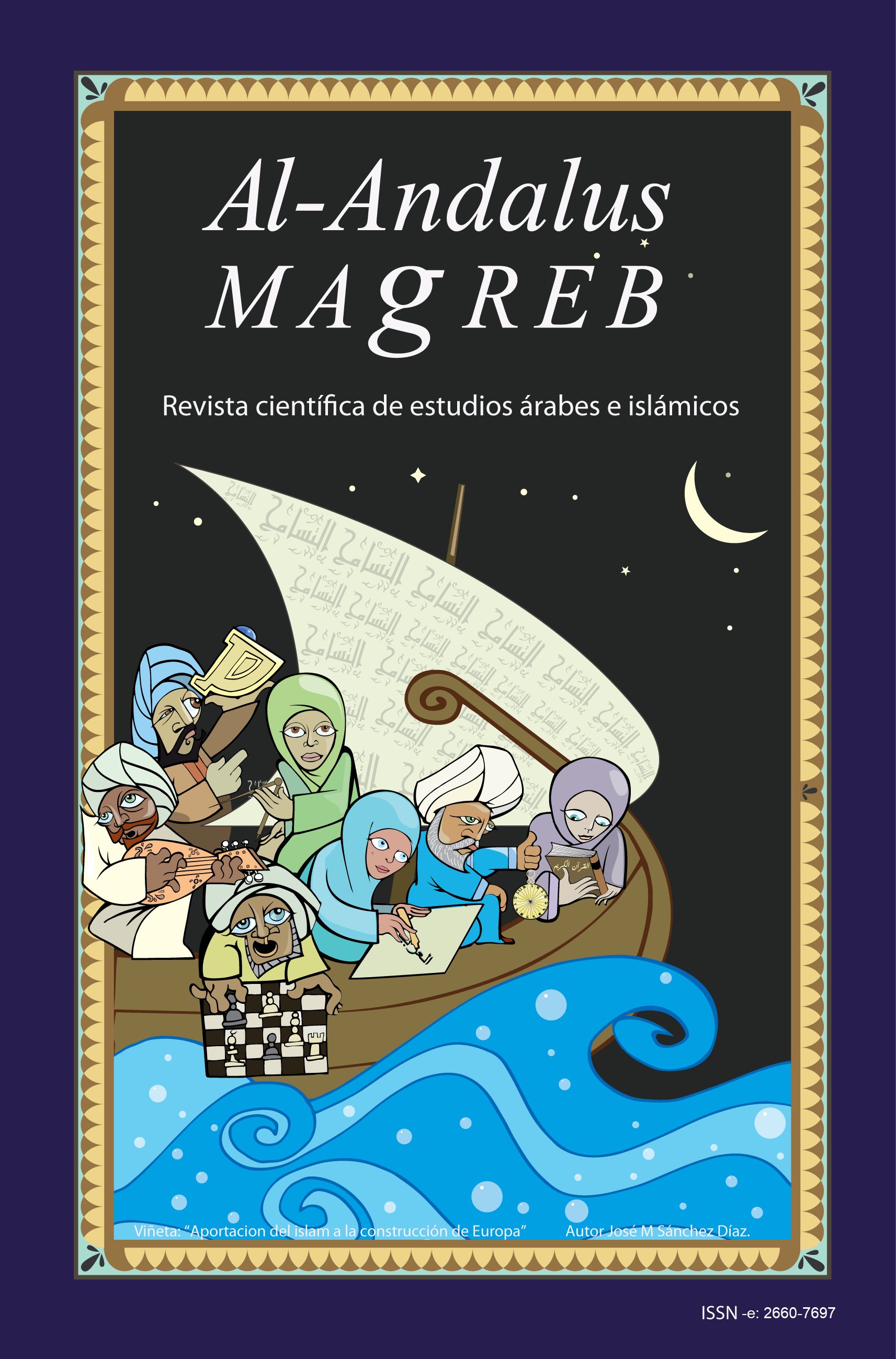Saharawi society from a gender perspective: family experiences in Western Sahara.

Downloads
- PDF (Español (España)) 222
- EPUB (Español (España)) 79
- VISOR (Español (España))
- MOVIL (Español (España))
- XML (Español (España)) 75
DOI
https://doi.org/10.25267/AAM.2022.i23.13Info
Abstract
The history of life, used as a starting point for sociological research, becomes a determining key in the case of the feminine condition and gender studies. The use of the personal history of the author and the fit of it in what is written and witnessed by other Saharawi women allows to shed light on a subject minimized by a sector of those who have dealt with the subject. The conflict between tradition and modernity in the SADR is seen from the point of view of women.
Keywords
Downloads
How to Cite
License

This work is licensed under a Creative Commons Attribution-NonCommercial-NoDerivatives 4.0 International License.
Those authors who have publications with this journal, accept the following terms:
a. Authors may retain their copyright and guarantee the journal the right of first publication of their work, which will be simultaneously subject to Licencia de reconocimiento de Creative Commons that allows third parties to share the work as long as its author is indicated. and its first publication this journal.
b. Authors may adopt other non-exclusive license agreements for the distribution of the version of the published work (eg: deposit it in an institutional electronic file) provided that the initial publication in this journal is indicated.
c. Authors are allowed and recommended to disseminate their work through the Internet (eg: in institutional telematic files or on their website) once the manuscript is accepted, which can lead to interesting exchanges and increase citations of the published work. (See El efecto del acceso abierto).
References
PAVÓN, Elisa (2016b) «Válvula de escape»
https://elisapavon.wordpress.com/2016/10/26/valvula-de-escape/
RODRÍGUEZ, Mariela. (2009) «La interdisciplinariedad: Acción comunicativa científica y humana». Centro de Servicios Pedagógicos, 8, 15-20.
RUBIN, Gayle (1996) «El tráfico de mujeres: Notas sobre la “economía política” del sexo», en LAMAS, Marta, (Compiladora). El género: la construcción cultural de la diferencia sexual. PUEG, México. 35-96.
SAADĀWĪ, Nawwāl (1990, 4ª ed.) al-Marˀa wa-l-ǧins («la mujer y el sexo") Dār wa-maṭābiˁ al-mustaqbil bi-l-Fagala wa-l-Iskandariyya.
SERRANO BORRUL, Nina (1998) «La mujer saharaui en los campos de refugiados», Curs Conflictes i Convergències 1998/99, organitzat per la Fundació Solidaritat Universidad de Barcelona: http://www.solidaritat.ub.edu/observatori/sahara/transver/mujer.htm
SIBAI, Sirin Adlbi (2012) «Colonialidad, feminismo e Islam», Viento Sur, n. 122, mayo 2012
UNMS, Unión Nacional de Mujeres Saharauis, https://saharaoccidental.es/quizas-te-interese/la-union-nacional-de-mujeres-saharauis-unms/






